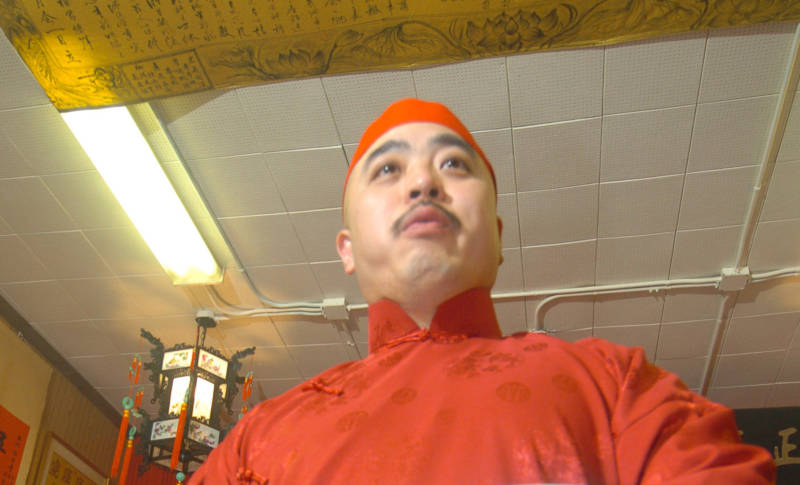Chow was convicted of ordering the 2006 murder of Allen Leung to make way for his ascension to head of the Chee Kung Tong. In exchange for leniency, several of Chow's former associates testified against him and said Chow ordered the murder.
In an iconic photo displayed during the trial, Chow was captured amid a flock of newspapers held by supporters to obscure him as he left Leung's funeral wearing a white suit. The prosecution alleged Chow's wardrobe choice was a symbol of disrespect and a sign of his power grab to assume the head of organized crime in Chinatown, a claim Chow disputes. The photo launched the FBI's "Operation White Suit."
Chow was also convicted of conspiring to murder Jim Tat Kong, who was shot to death with his wife in Fort Bragg in 2013.
"Jim Tat Kong eventually was murdered, although not necessarily as a result of Mr. Chow’s conspiracy to have him taken out," Frentzen said. A former associate of Chow's testified that he was brought in to kill Kong, but Chow later abandoned those plans.
Over the past two years, the public got to know Chow's broad, smiling face as he sat silently through most days of court hearings and a highly publicized jury trial. He insisted on the jury trial, and spent days in the rare decision to testify during his own criminal prosecution.
He spoke at length at his sentencing, devoting most of his comments to criticizing his former defense attorneys.
"My defense team totally failed to protecting my right," Chow said, addressing the judge in stilted English. "Totally incompetent to have this really poor representation during my whole trial."
One of Chow's strategies, executed by storied defense attorney Tony Serra, was to attempt to prove the FBI and U.S. attorney's Office were obsessed with him while they ignored corruption and crimes of other San Francisco politicians. Chow's attorneys publicly filed transcripts of recordings from phone taps implicating two of San Francisco Mayor Ed Lee's former fundraisers and city employees -- Nazly Mohajer and Zula Jones. Along with Chow's co-defendant and former city school board president Keith Jackson, they are alleged in a separate prosecution to have laundered illegal campaign donations for Lee.
The court denied Chow's motion alleging selective prosecution.
"I’ve been prejudiced by the court, by this ruling, by the court protecting Ed Lee from this case," Chow said. "I feel I’m the victim in this matter."
Lee's re-election campaign disavowed any knowledge of the scheme and donated $1,500 collected by Mohajer and Jones to the city's general fund.
Chow accused federal judge Charles Breyer of "acting like a prosecutor" during his testimony. And he said the prosecution should not have been allowed to display dozens of firearms seized from Chow's co-defendants, which he says he had nothing to do with.
"You got the wrong man," he said. "I’m not the man you’re looking for. I’m not the man who committed those crimes."
After Chow's oration, Breyer handed him two life sentences, one for his role in the criminal enterprise and one for the murder of Leung.
"The murder in this case was particularly callous because it was the removal of an obstacle in your quest for power," Breyer said from the bench. "Your motivation in doing so was to take over the leadership role of the tong and corrupt their purposes."
Breyer ordered Chow to pay $15,881.60 to Leung's family in restitution.
"He's eager to move on to the next phase of these proceedings," said Matt Dirkes, who recently took over Chow's defense. "On appeal ... there's a lot of reasons why a reviewing court would be able to find that the trial process was not one that afforded Mr. Chow his constitutionally mandated rights."
